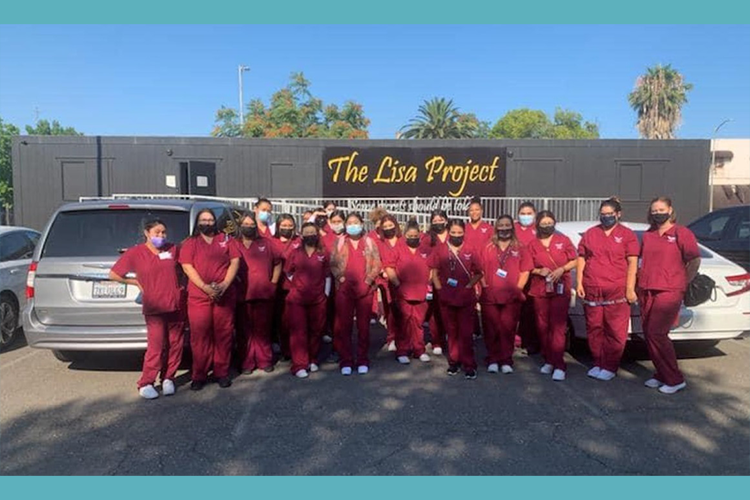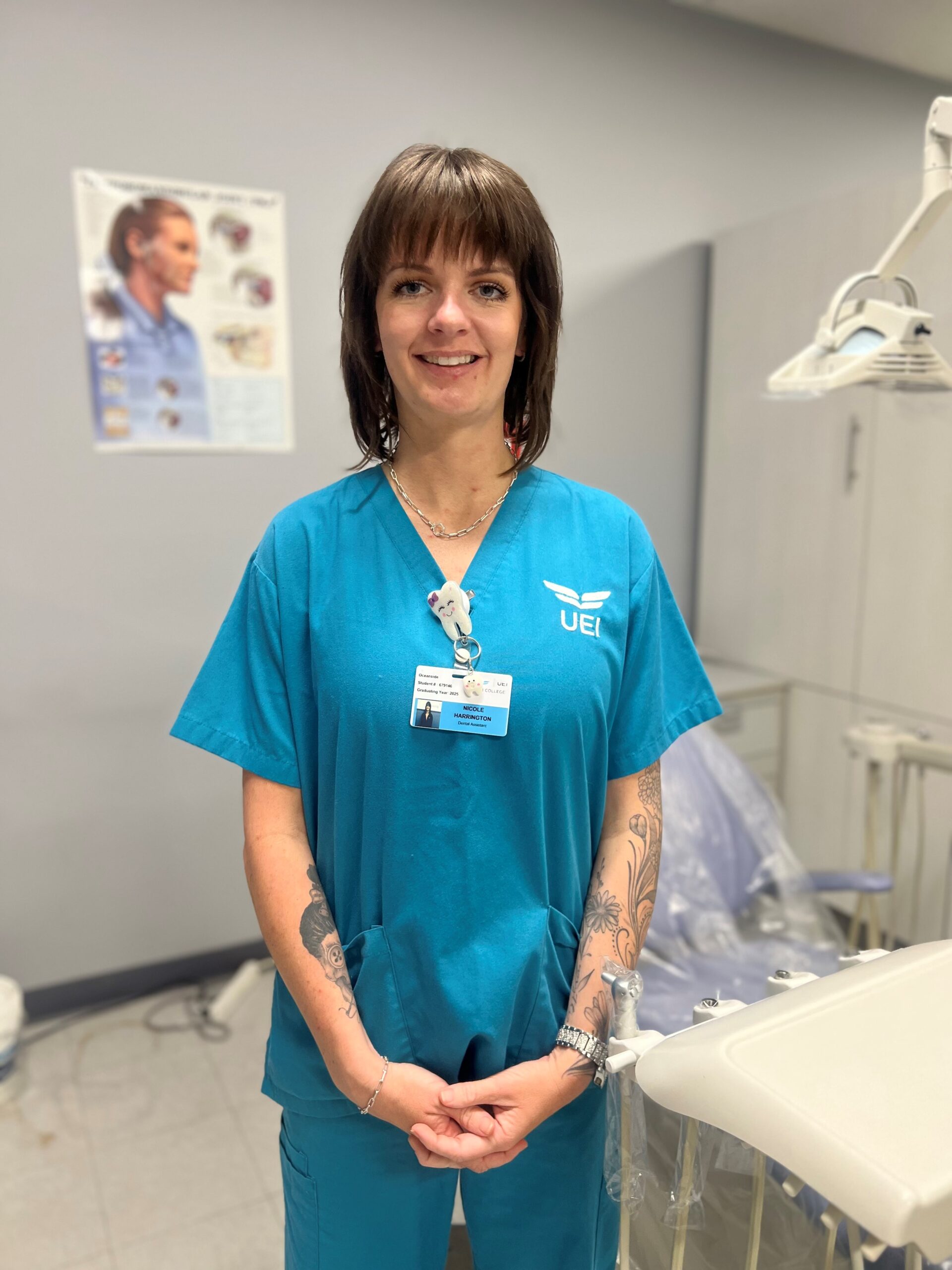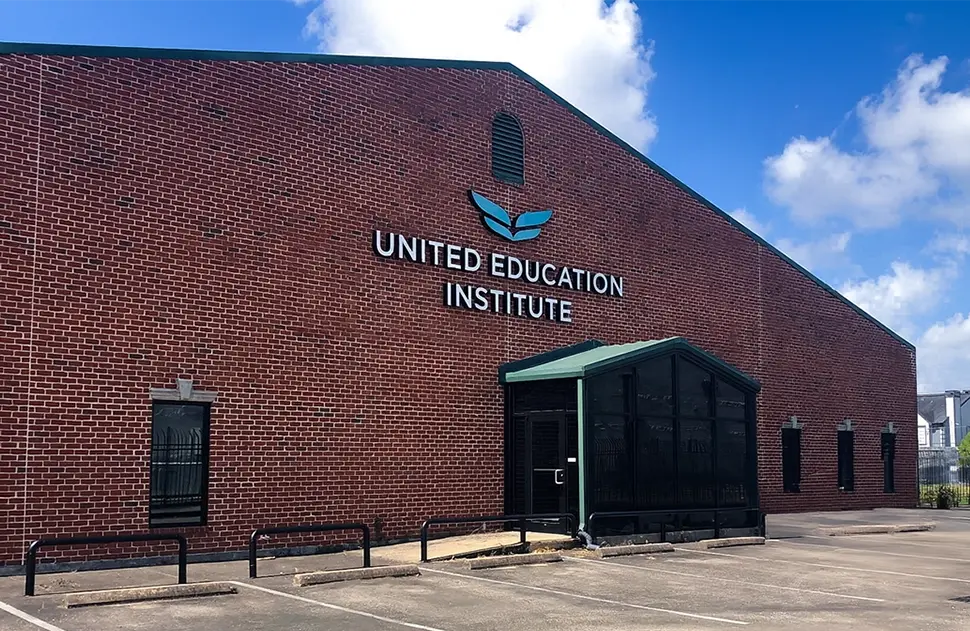
UEI College Students Learn From ‘The Lisa Project’ in Stockton
Before UEI College instructor Kathy Escobedo leads a new class of Stockton Medical Assistant Program students on a field trip to The Lisa Project, she’s always careful to prepare them for what they’re about to experience. She knows, unfortunately, that what they see may hit a little too close to home for some.
“I don’t want them to be surprised,” Kathy said. “They’re getting the reality of some of the demographics we’re dealing with in our community. I tell them that some of these cases are going to be the patients that come into your office for help.”
The cases she is referring to are child abuse cases – incidences of physical, sexual and emotional abuse in minors.
In an effort to raise awareness about such child abuse, Kathy and other UEI Stockton instructors in the Medical Assistant, Dental Assistant and Medical Office Specialist programs take students from each of their classes on field trips to The Lisa Project in Stockton. They’ve been doing this since 2015.
Not only does the experience help future medical assistants better recognize the signs and symptoms of child abuse, Kathy said, but it also helps them develop empathy for patients, a skill that will make them better in their medical careers.
“It shows them what having empathy for our patients is all about,” she said. “Being a medical assistant, a lot of times we need to be more sensitive to the needs of our patients because of the trauma they’ve been through. Having empathy is one of our biggest soft skills and part of being a good MA. Does it require going to The Lisa Project? Not really, but for us it’s a big component.”
What is The Lisa Project?
The Lisa Project is a nonprofit organization that exists to raise awareness and educate about child abuse, while also providing community outreach and resources to those affected by this reality. They do this through interactive, multi-sensory exhibits that strive to realistically depict what life is like for abused children.
Visitors at The Lisa Project walk through spaces staged as a different room of the home, with each room telling a different child’s story related to a different type of abuse.
Each exhibit uses sight, sound and smell to bring each room to life. And, as people explore the rooms, children’s voices narrate their own stories.
“I did tear up quite a lot,” said Ronnie Deiz, a UEI Medical Assistant student who recently took the tour with his class. “I do have friends that come from homes such as this. Just being in that world and that type of environment, it felt so, so real.”
The tour begins with visitors listening to a real 10-minute 911 call made by a 6-year-old girl by the name of Lisa, the namesake of the organization. Made back in 1990, Lisa screamed, cried and begged for help through the commotion of her mom and step-dad fighting in the background.
“In the first room, I started to tear up,” said Christina Waterhouse, also a UEI Medical Assistant student. “And then, I was just kind of breathing through it. I knew it was going to be difficult. Room by room, I kind of just was looking around and listening with my head down, feeling sad for these kids.”
Making Better Medical Assistants
According to Kathy, the obvious value of taking time out of class for students to experience these exhibits is because Medical Assistants serve as mandatory reporters. In other words, since they will have regular contact with vulnerable populations, such as children, they will be legally required to report on any observed or expected abuse.
In addition, Kathy said being able to see, hear and feel the environments within which abused children live can also help all students in the medical field establish greater empathy for patients.
“It opens up the way you provide that customer service to your patients,” she said. “You’re dealing with different dynamics, different demographics, different conditions – this much time to live, family members dealing with disease, and yes, abused children. When you have empathy and compassion toward servicing the patient at the moment – the way you speak to them, direct verbiage, a smile – sometimes that’s all the patient needs.”
The important role empathy plays in healthcare isn’t just anecdotal. Scientific studies like this recent paper published in the medical journal Healthcare conclude that empathy can improve the way a patient feels and responds.
“Empathy among health care users and professionals significantly contributes to how both groups behave as well as to their therapy and overall well-being,” researchers wrote. “The development of empathetic skills constitutes an important priority in the education of health and social care students and should be encouraged.”
According to Christina, the therapeutic benefits of empathy actually played out in real time among her fellow students.
“Not only did we kind of bond as a group, but we also learned a lot from each other,” she said. “Some of the girls came out bawling and in tears because it triggered something that happened in their lives. Although it was hard, it was good for them to know they’re not alone.”
For more information about The Lisa Project, including scheduling visits to one of their four California sites, visit thelisaproject.org.





